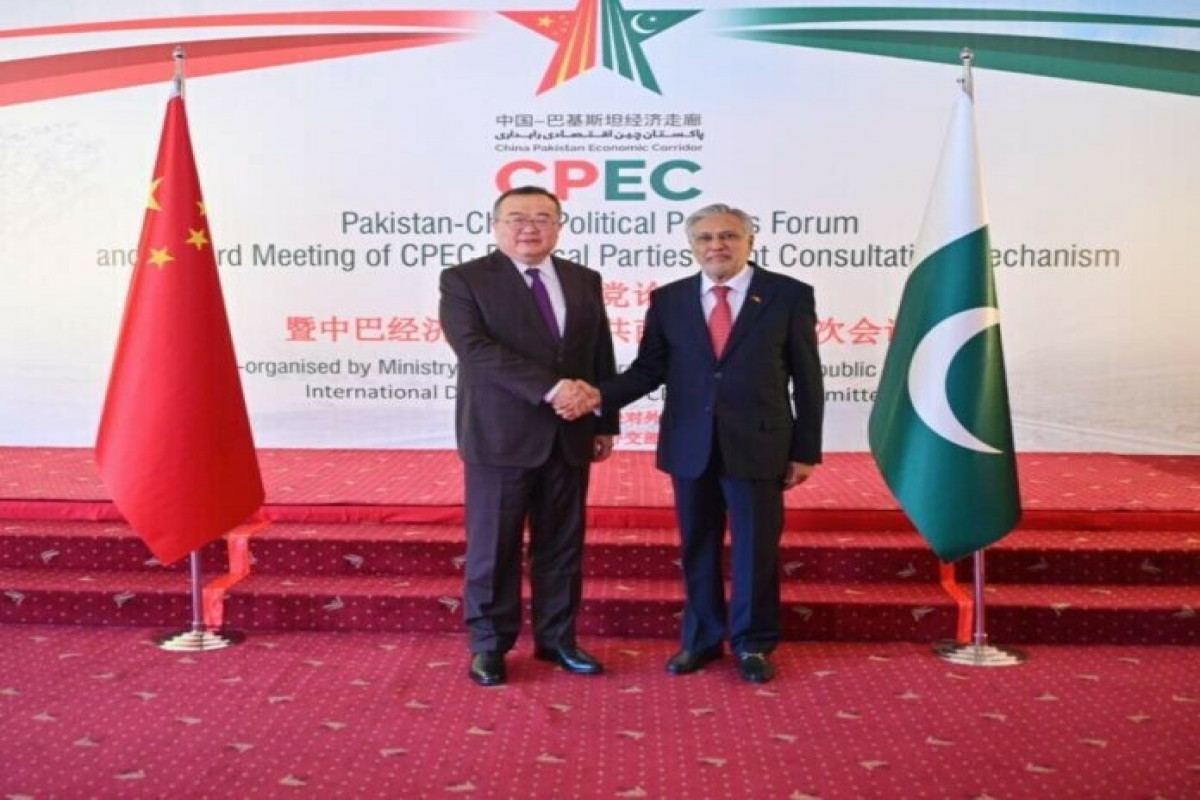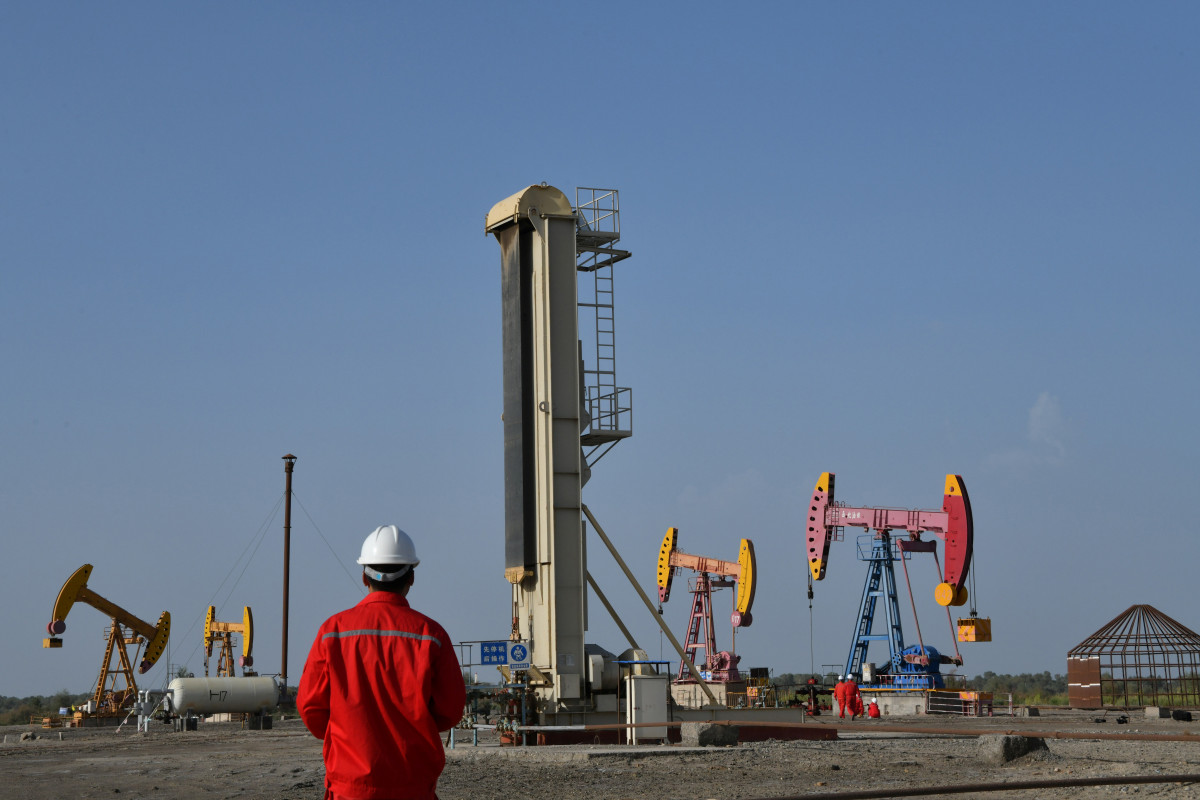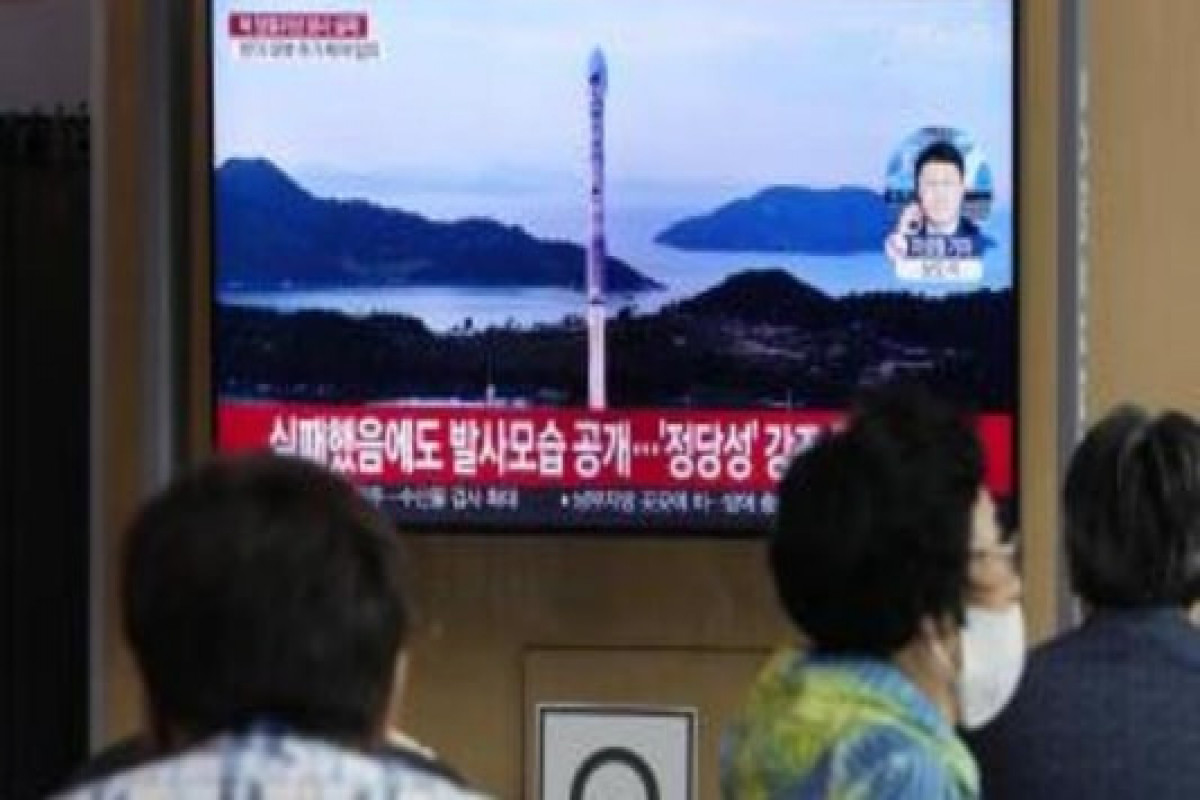Chairman of the Senate of Pakistan Yousuf Raza Gilani said that the China-Pakistan Economic Corridor (CPEC) is a transformative journey for Pakistan that catalyzed investment, technology transfer, knowledge sharing, and skill development with a cumulative investment of billions of dollars from China, APA reports citing Xinhua.
Speaking at the launching event of the Annual Sustainability Report 2023, jointly organized by an Islamabad-based think-tank Sustainable Development Policy Institute, and the China Chamber of Commerce in Pakistan (CCCPK), here on Friday, Gilani said that CPEC created wealth and generated over 200,000 direct jobs in Pakistan.
CPEC is a non-partisan agenda in Pakistan, as all political parties stand united with the government in its support, he said.
"This collaboration reflects our collective commitment to ensuring the project's success and harnessing its potential for the benefit of the entire nation," the chairman added.
He also suggested using the Chinese currency yuan instead of the U.S. dollar in financial transactions, saying it can help diversify financial pressures on the current account and thus benefit Pakistan's economy.
Speaking at the event, the country's Minister for Planning, Development, and Special Initiatives Ahsan Iqbal stated that CPEC is more than just roads, power plants, infrastructure networks, and buildings.
"It is a vision of shared prosperity, embedded in the aspirations of both the leadership and the people of China and Pakistan. I'm sure that just as we successfully completed phase one of CPEC, phase two will bring more opportunities for prosperity and development, not just for China and Pakistan, but for the entire region," he added.
The minister said Chinese enterprises working in Pakistan have not only jointly invested billions of U.S. dollars in Pakistan but also spent generously on corporate social responsibility to bring ease and smiles to people's lives.
Talking about the role being played by Chinese enterprises in Pakistan, the president of the CCCPK, Wang Huihua, said that they are committed to playing a pivotal role in bridging the economies and cultures of Pakistan and China.
"The Chinese enterprises in Pakistan have consistently adhered to the principles of sustainable development integrating seamlessly with the local economy and actively fulfilling their social responsibilities even in complex environments. We have worked hand in hand with local government authorities and commercial hubs to advance and integrate this development further," he added.
Launched in 2013, the CPEC, a flagship project of the China-proposed Belt and Road Initiative, is a corridor linking the Gwadar Port in southwest Pakistan's Balochistan province with Kashgar in northwest China's Xinjiang Uygur Autonomous Region, which highlights energy, transport, and industrial cooperation in the first phase, while in the new phase expands to fields of agriculture and livelihood, among others.






